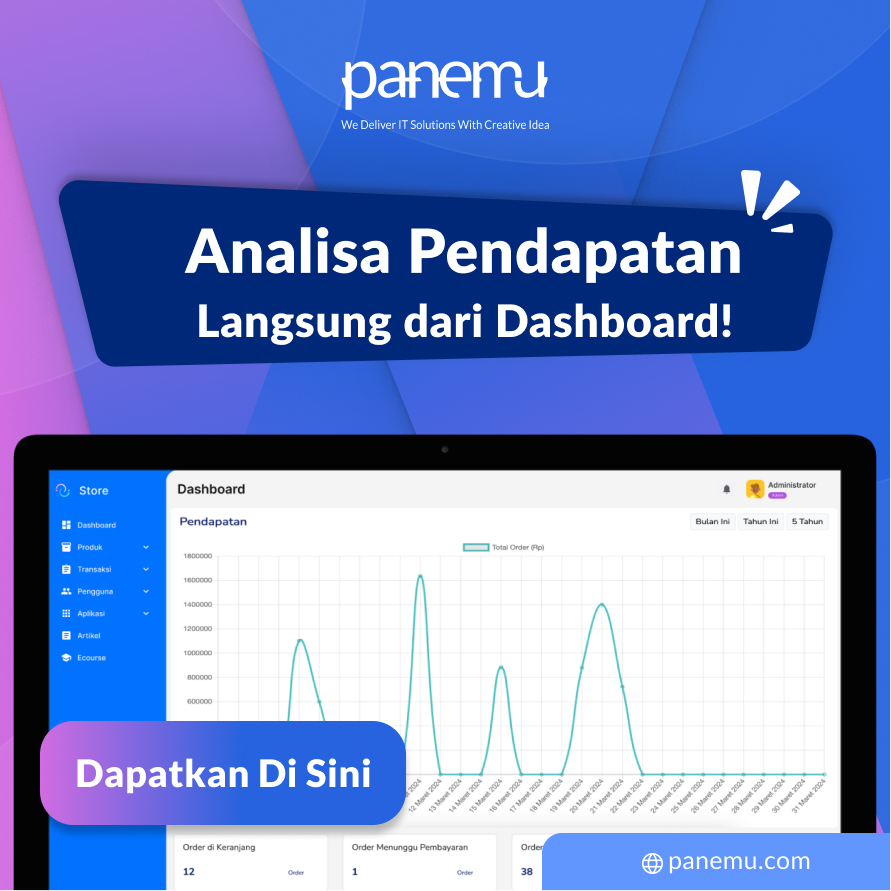Introduction
E-commerce or electronic commerce has become an integral part of the modern business world, including for Micro, Small and Medium Enterprises (MSMEs). However, to be successful in the e-commerce business, it is important for MSME players to understand and comply with various applicable regulations and policies. This article will discuss various regulations and policies that MSMEs involved in e-commerce must be aware of, from legal aspects to tax obligations.
1. Business Licensing and Legality
1.1. Establishment of a Business Entity
To run an e-commerce business, MSMEs must have valid business legality. There are several forms of business entity to choose from, such as:
Sole Proprietorship: The simplest form of business is usually chosen by MSMEs.
CV (Limited Partnership): A form of joint venture consisting of active partners and passive partners.
PT (Limited Liability Company): This form of business has advantages in terms of legal protection for the owner's personal assets.
Steps:
Determining the Type of Business Entity: Choose the type of business entity that suits your needs and business scale.
Submitting an Application for Standing: Submit an application for the establishment of a business entity to a notary to make a deed of establishment.
Managing NIB: Register your business through the Online Single Submission (OSS) system to get a Business Identification Number (NIB).
1.2. Business Identification Number (NIB)
NIB is an identity for business actors provided by the government through the OSS system. This NIB functions as a Company Registration Certificate (TDP), Importer Identification Number (API), and customs access.
Steps:
Registration at OSS: Create an account on the OSS portal (oss.go.id).
Filling the Online Form: Fill in the form with correct and complete business data.
Getting NIB: Once the filling is complete, the NIB will be issued electronically.
2. Consumer Protection
2.1. Consumer Protection Act
MSMEs must understand and comply with Law Number 8 of 1999 concerning Consumer Protection. Several important points in this law include:
Obligation to Provide Correct Information: MSMEs must provide clear, correct and not misleading information about the products they sell.
Warranty and After Sales Service: MSMEs must provide guarantees and after-sales services in accordance with applicable agreements or provisions.
Steps:
Crafting Product Descriptions: Ensure product descriptions are complete and accurate.
Providing Contact Information: Provide contact information that can be contacted for after-sales service.
Drafting a Warranty Policy: Determine a warranty policy that is clear and easy for consumers to understand.
2.2. Consumer Dispute Resolution
MSMEs must be prepared to face possible disputes with consumers and know the mechanisms for resolving disputes, both through non-litigation channels such as the Consumer Dispute Resolution Agency (BPSK) and through litigation in court.
Steps:
Identifying the Problem: Respond quickly to consumer complaints and identify the problem.
Negotiation: Try to resolve problems through direct negotiations with consumers.
Submit to BPSK: If there is no agreement, submit the dispute to BPSK for mediation.
3. Taxation
3.1. Income Tax (PPh)
MSMEs operating in e-commerce are required to pay Income Tax in accordance with applicable regulations. Based on Government Regulation Number 23 of 2018, the final income tax rate for MSMEs is 0.5% of turnover.
Steps:
Register NPWP: Register your business to get a Taxpayer Identification Number (NPWP).
Calculating Turnover: Record all income and calculate monthly turnover.
Paying income tax: Pay Income Tax of 0.5% of monthly turnover.
3.2. Value Added Tax (VAT)
If the turnover of MSMEs exceeds IDR 4.8 billion per year, then the MSMEs are required to become Taxable Entrepreneurs (PKP) and collect Value Added Tax (VAT) of 10% from every transaction carried out.
Steps:
Register as a PKP: Register your business as a Taxable Entrepreneur (PKP) at the nearest tax office.
Collecting VAT: Start collecting VAT of 10% from each sale.
Reporting VAT: Report and deposit the VAT that has been collected every month.
4. Personal Data Protection
4.1. Personal Data Protection Act
MSMEs must comply with Law Number 27 of 2022 concerning Personal Data Protection. Some of the obligations of MSMEs regarding personal data protection include:
Obligation to Secure Personal Data: MSMEs must ensure that consumers' personal data is protected and not misused.
Consumer Rights on Personal Data: Consumers have the right to know, access and delete their personal data stored by MSMEs.
Steps:
Drafting a Privacy Policy: Create a clear and comprehensive privacy policy.
Securing Data: Use a strong security system to protect consumer data.
Providing Data Access: Give consumers access to view and delete their data if requested.
5. Intellectual Property Rights
5.1. Trademark Registration
MSMEs should register their trademarks with the Directorate General of Intellectual Property (DJKI) to obtain legal protection. Registered trademarks can help MSMEs protect their business identity from imitation.
Steps:
Checking Brand Availability: Check trademark availability via DJKI.
Applying for Registration: Apply for trademark registration to DJKI.
Waiting for Verification: Wait for the verification process and official announcement from DJKI.
5.2. Copyrights and Patents
Apart from trademarks, MSMEs also need to pay attention to copyrights and patents. Products or works produced by MSMEs must be registered in order to receive legal protection and avoid claims of copyright or patent infringement by other parties.
Steps:
Documenting Work: Document every work or innovation produced.
Applying for Registration: Apply for copyright or patent registration Of DJS.
Waiting Process: Wait for the inspection process and issuance of a copyright or patent certificate.
6. International Trade Regulations
6.1. Export and Import
MSMEs that plan to export or import products must understand the applicable regulations. Some things to pay attention to include:
Export and Import Documents: MSMEs must prepare the necessary documents such as invoices, packing lists and bills of lading.
Export and Import Licensing: MSMEs must have permission from the relevant agency to carry out export or import activities.
Steps:
Preparing Documents: Prepare all necessary documents for export or import.
Managing Permits: Obtain permission from the relevant agency, such as Customs or the Ministry of Trade.
Arranging Delivery: Coordinate with logistics companies for delivery of goods.
6.2. International Trade Terms
MSMEs must understand international trade provisions such as the provisions of the World Trade Organization (WTO) and free trade agreements (FTA) that apply between Indonesia and other countries.
Steps:
Studying Terms: Study relevant WTO and FTA provisions.
Taking Training: Take training or seminars on international trade.
Implementing Conditions: Apply these provisions in export and import activities.
7. Regulations Regarding E-Commerce Platforms
7.1. Platform Policy
MSMEs must comply with the policies and terms and conditions of the e-commerce platforms where they sell, such as Tokopedia, Shopee, or Bukalapak. This includes sales, shipping and return policies.
Steps:
Reading the Policy: Read and understand the policies of each e-commerce platform.
Follow the rules: Make sure your products and services comply with platform policies.
Comply with Terms: Follow all provisions regarding shipping and returning goods.
7.2. Government Regulations for E-Commerce Platforms
The Indonesian government, through the Ministry of Trade, has issued Minister of Trade Regulation Number 50 of 2020 concerning Provisions for Business Licensing, Advertising, Guidance and Supervision of Business Actors Trading Through Electronic Systems. MSMEs must comply with these regulations in order to run their e-commerce business smoothly.
Steps:
Studying the Regulations: Learn the Regulation of the Minister of Trade No. 50 in 2020.
Registering a Business: Register your business in accordance with the provisions stipulated in these regulations.
Comply with Terms: Follow all provisions related to licensing, advertising and coaching as regulated in regulations.
8. Regulations Regarding Payments
8.1. Payment system
MSMEs must choose and use a safe and reliable payment system. Some commonly used payment system options include bank transfers, e-wallets, and payment gateways.
Steps:
Choosing a Payment System: Choose a payment system that suits your business needs.
Register with Service Provider: Register your business with the selected payment service provider.
Integrating Payments: Integrate payment systems with your e-commerce platform.
8.2. Bank Indonesia Regulations
MSMEs must comply with regulations issued by Bank Indonesia regarding electronic payment systems. This includes transaction security standards and consumer protection when using electronic payment services.
Steps:
Studying the Regulations: Learn the regulations from Bank Indonesia regarding payment systems.
Ensuring Compliance: Make sure the payment system you use complies with the security standards set by Bank Indonesia.
Protecting Consumers: Implement consumer protection measures in every electronic transaction.
Conclusion
Understanding and complying with applicable regulations and policies is the key to success for MSMEs in running an e-commerce business. By complying with existing regulations, MSMEs can not only run their business smoothly, but also build consumer trust and avoid legal problems in the future. Therefore, it is important for MSME players to always follow developments in regulations and policies related to e-commerce in Indonesia.



